The author's aging Lab retrieves a wild rooster. Christine Peterson
TUCO CHASED the rooster until it flew just high enough over the golden grass of the eastern Wyoming prairie for me to shoot. I threw up my gun, looking down the barrel at what would become my first bird—my first anything.
I waited. My young Labrador glanced back at me. I shot.
The pheasant dropped and Tuco, not quite two years old, took off after it. Then he carried it back to me, completing a loop between dog and human stretching thousands of years from the moment when both species first realized they each had something to offer the other.
I said “good boy” too many times to count, then knelt with the iridescent rooster in one hand and made Tuco sit next to me. My husband, Josh, snapped a picture. In that instant, we both looked how we felt: proud, and maybe a little surprised that he flushed a bird, and that I had shot it. For that fleeting moment, we were just … there.
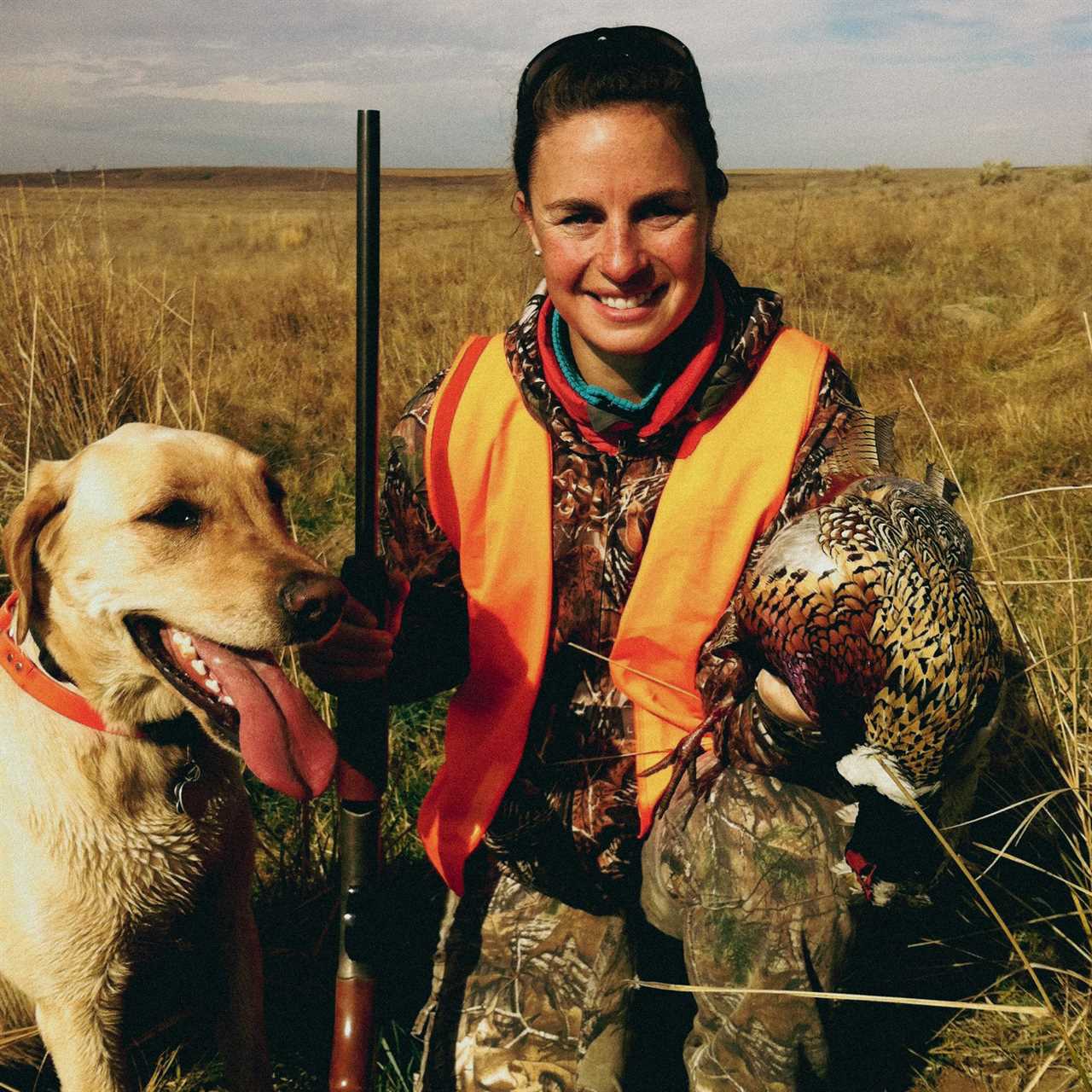
Tuco and the author with her first rooster. Josh Peterson
Then we stood again. He raced off with his nose to the ground, and I shoved the bird in my vest. We went back to looking for what’s next, anticipating for the next smell, the next flush, the next opportunity.
The whole exchange took no more than a few minutes, from flush to photo finish. But it was the culmination of half a decade of me contemplating hunting, writing about hunting, talking to people about hunting, and even practicing hunting. It was the nearly two years Josh and I spent training Tuco, even though we didn’t know what we were doing and he didn’t know what he was doing. It was the culmination of the three of us embracing our youth and naïveté and bumbling through it all because we wanted it to.
I should have known that moment’s significance eight years ago. I should have known what it could teach me and what he could teach me. But I didn’t, not yet.
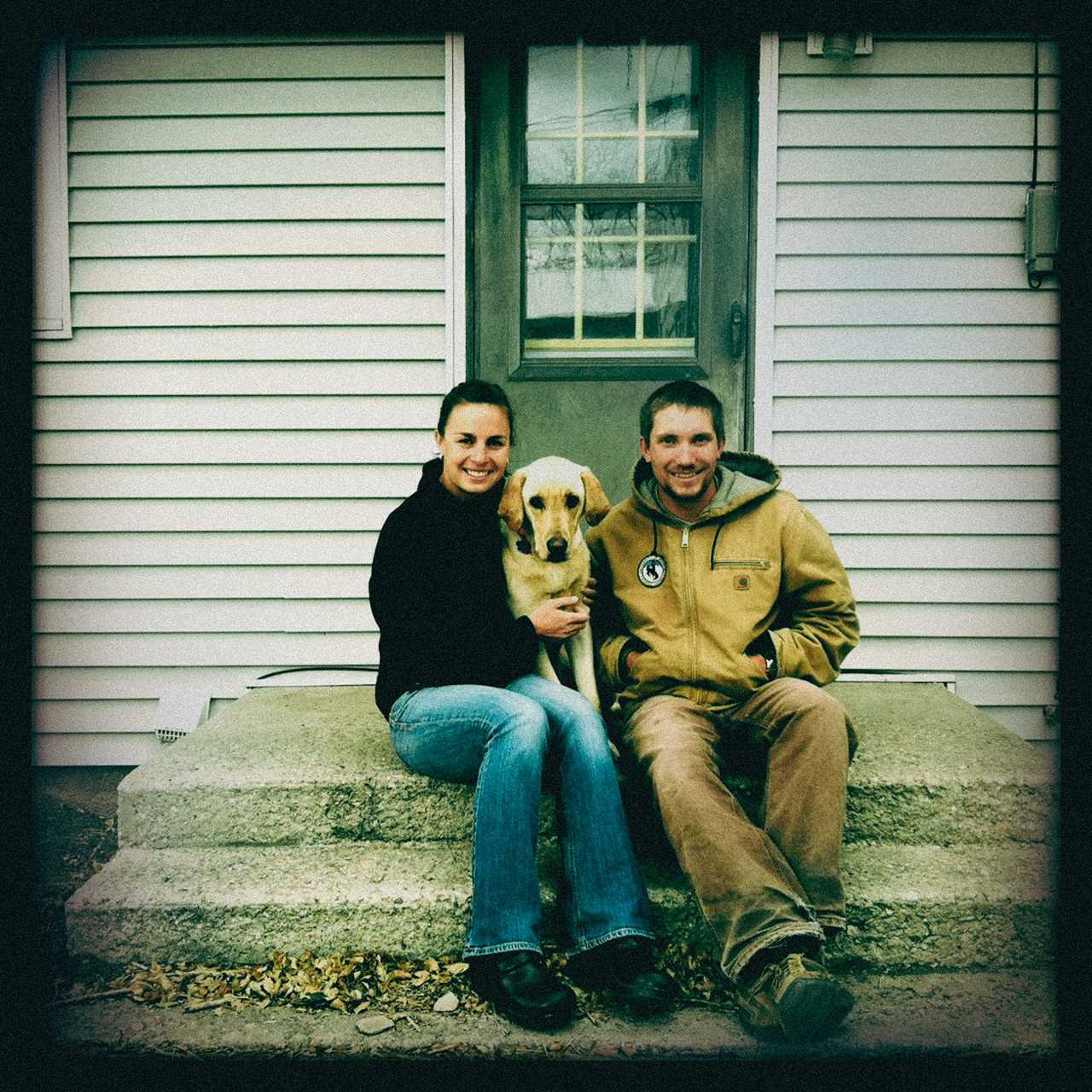
The author and her husband with their young bird dog. Courtesy of Christine Peterson
Made for Each Other
All I wanted was a dog. It didn’t matter what kind of dog. I grew up with a 140-pound malamute who slept on my bed until he was too old to climb all the way up. A Siberian husky outran me through high school until her heart gave out sometime after she turned 17.
I didn’t just want a dog. I needed a dog. Because here’s the thing: I am an absurd dog person. I am wild about dogs in a way that doesn’t always make sense. I know it, and I don’t care. I worked long, lonely hours by myself from home. I had started a strange habit of staring out my window and sprinting outside to pet any dogs who walked by—acceptable behavior in a child, odd in an adult.
But there are good times to get dogs and bad times to get dogs. Living with my parents for six months while my new husband finished school was not a good time. So for Christmas, Josh gave me a puppy-a-day calendar. They were all Labradors—yellow, black, chocolate, silver—and instead of laughing at the funny joke, I cried. I really needed a dog, and now everyone staring at me sob over a calendar surrounded by torn wrapping paper knew just how much.
Soon after, my mom told me about her friend who had Labrador puppies. We should look at them, she said. I called the friend within minutes and went over that afternoon. Six long weeks later, there we were, sitting downstairs in his living room with a little yellow ball of fur curled under the crook of my knees. This one had ran over to me to seek refuge from his siblings. He and I both knew: He would be ours.
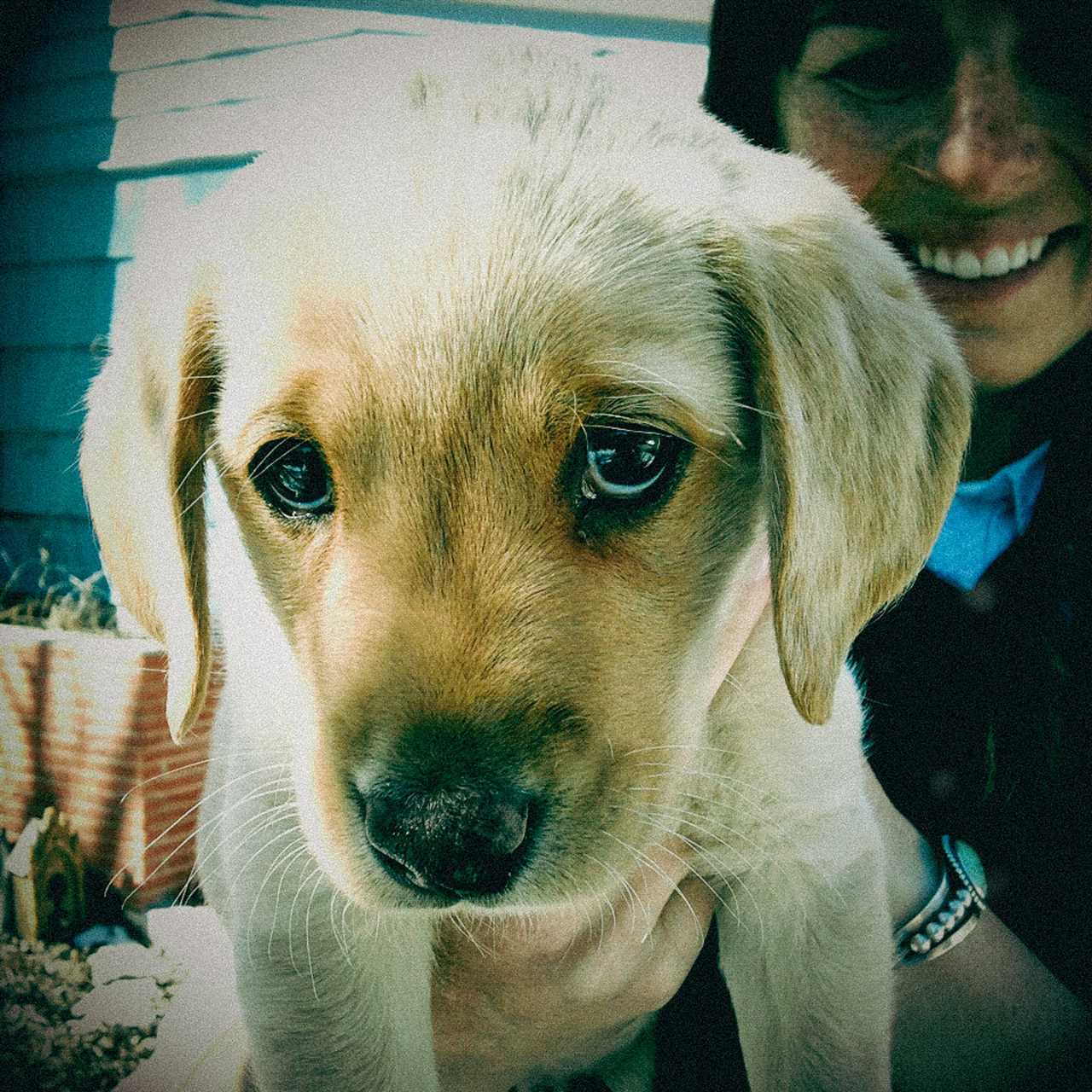
The author and her puppy. Josh Peterson
Tuco and I grew up together. We moved to a new town and figured out where to find pheasants. He was my refuge from bad bosses and my solace through loneliness and depression. Even by the time he was fully grown at 90 pounds, Tuco let me pick him up and hold him in my lap. When the temperature fell to 20 below zero and the furnace went out in our run-down rental, Tuco kept me warm. I typed away on the floor with my back pressed up against his. The three of us settled in yet another new house. We learned how to find grouse in the snow.
But those joys came with an unexpected price. It’s the one all of us face when we give our hearts to a dog. One day, they’ll be gone. So on a hot summer day while we were lying on the cold tile floor, we agreed that he’d live forever. I made him promise.
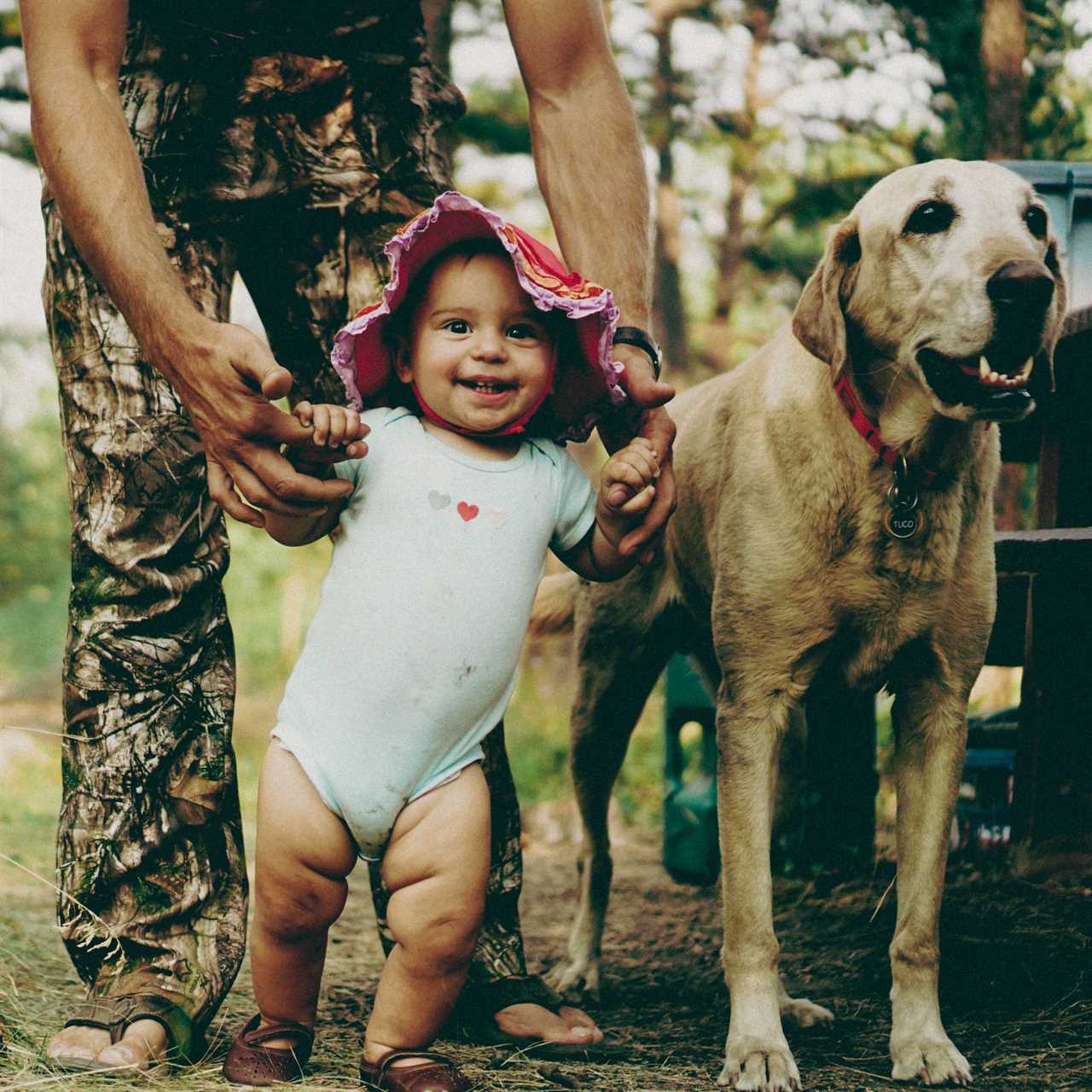
The author’s family. Christine Peterson
Josh and I had a daughter. Tuco’s face turned white. Then we moved again, taking him and that little girl to another town. He pretended she was an inconvenience, but he still curled up by her bed each night. Everywhere we went, he and I ran, miles and miles and miles. He kept in shape for bird season, I kept the demons at bay, and we learned a little bit more about what we were supposed to be doing.
That’s what you do with your first dog. You teach them. But really, they’re just teaching you.
Then last year, Tuco started drinking more water than usual. Lots of water. I wondered if he had a kidney problem or diabetes. He’ll be fine, I told myself before I found out he wouldn’t be fine. The veterinarian walked into the room and told me that the 8-year-old Labrador who turned me into a hunter had blood cancer.
She told me he’d have a couple months, maybe longer. We should make him comfortable. She told me there were treatments, but multiple myeloma was a rare disease and the prognosis uncertain. I couldn’t stop crying.
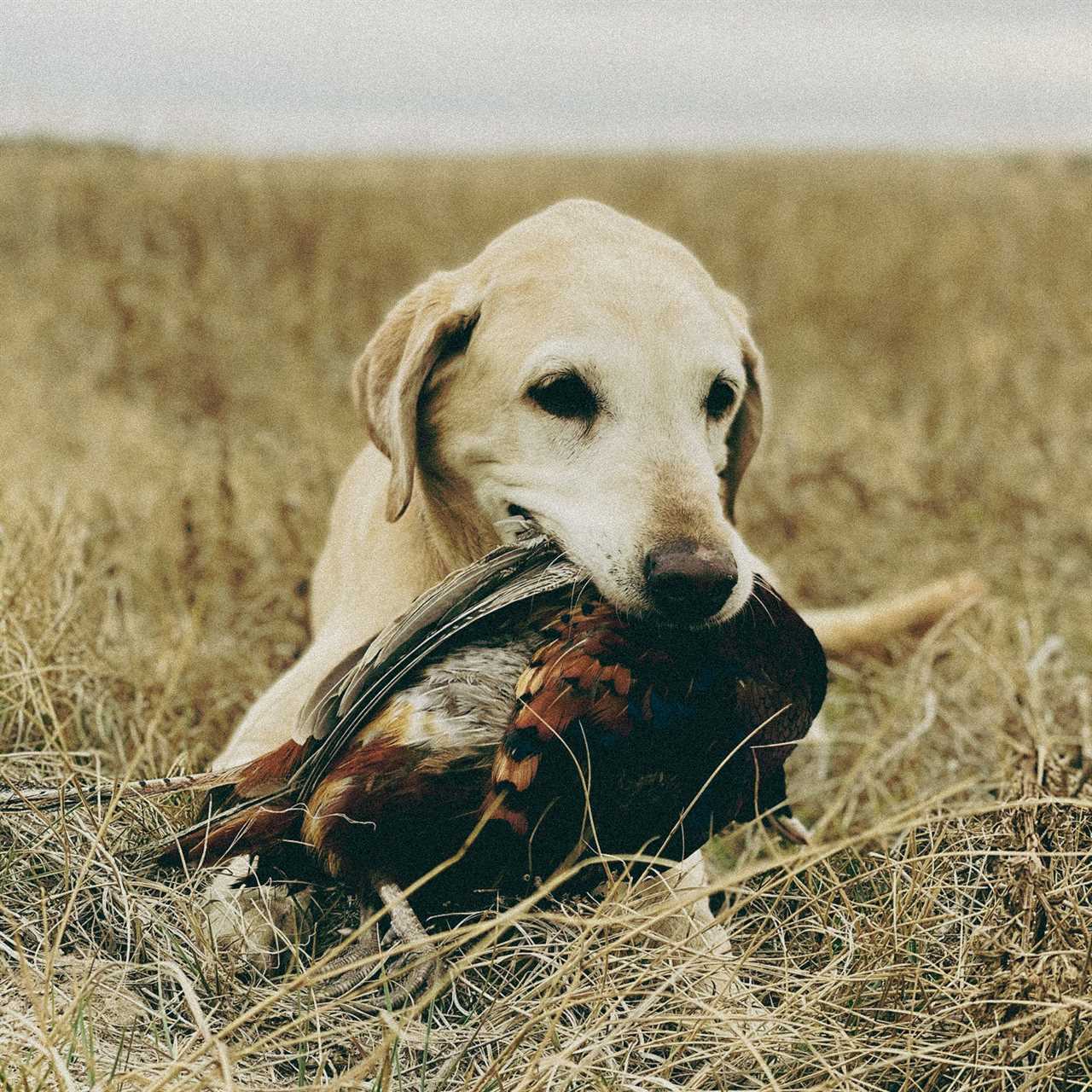
The white-faced bird dog fetching up a rooster. Christine Peterson
I wanted to ask questions. I’m a journalist. That’s how I make sense of the world. But I couldn’t ask the vet anything just yet. Instead, I talked to Tuco. I just kept telling him it would be alright as though he needed my reassurances.
I didn’t know what to do, so we went for a run.
That was enough to get me through more phone calls, more tests, and a decision to try treatment. When I finally ran out of questions, we went hunting.
We’ve Got What We Need
Weeks later, chemo and steroids coursing through his veins, we pulled up behind a truck parked in the cured grass and sagebrush of Wyoming. I opened the door and lifted Tuco out. Two dogs jumped out of the other truck. Their white faces all looked the same.
It was a meeting I’d been anticipating for eight years: Tuco would finally hunt with his mom and sister. His mom was 13. His sister was eight, just like him. Moments later, they took off. They had birds to find.
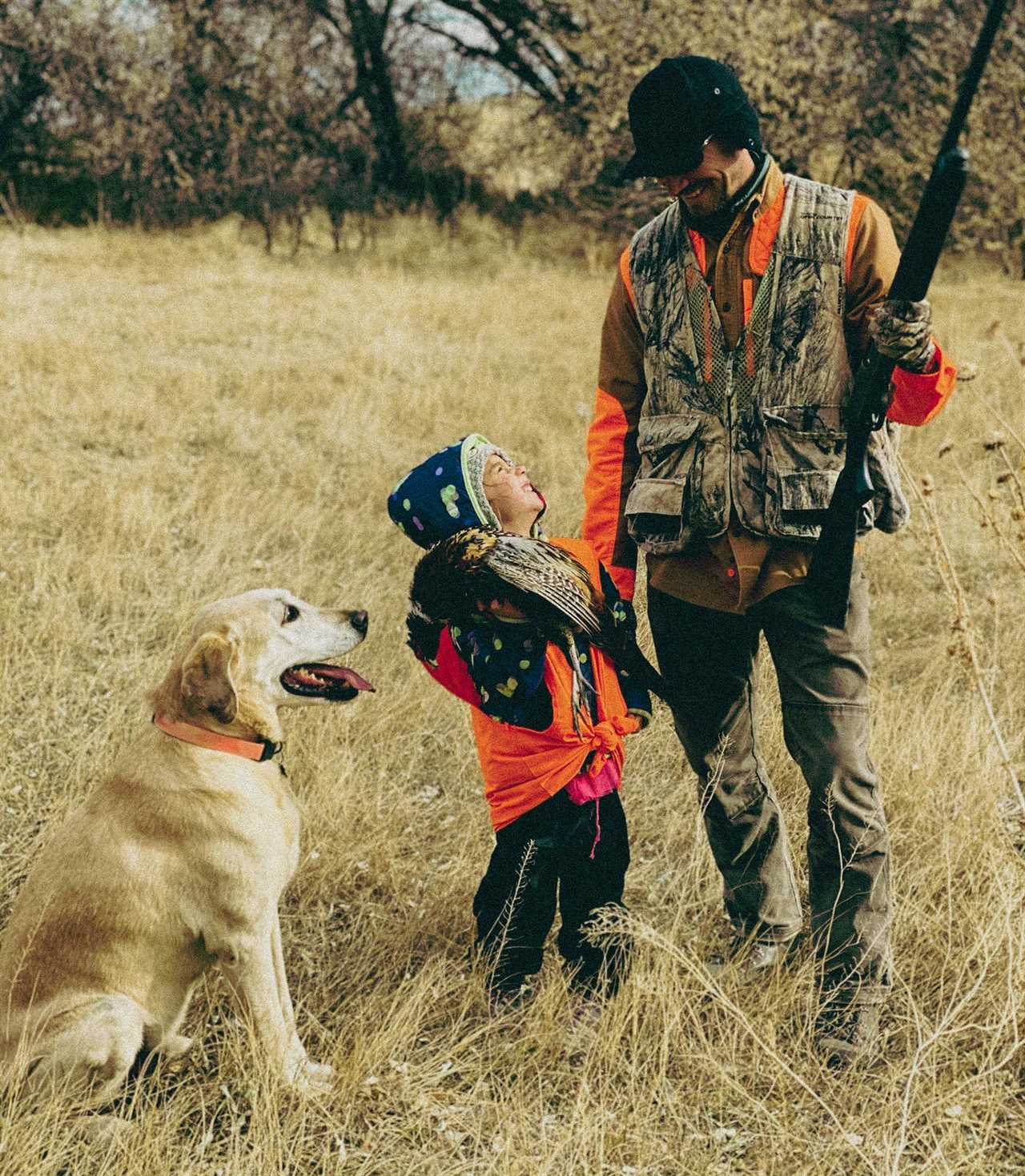
A family portrait. Christine Peterson
Noses to the ground, they busted through thick, spindly willows and tall grasses, flushing roosters and bringing them back. The dogs hunted as if no one was sick. No one was old.
I watched him, and I thought. Maybe the drugs will work. Maybe he’ll be the exception. Maybe I’ll have him for longer than anyone thinks. Maybe we’ll still hunt those chukar next month, that backpacking trip next June. Maybe he’ll make it to another hunting season.
Then I stopped myself. Waiting for what’s next wasn’t ever the point.
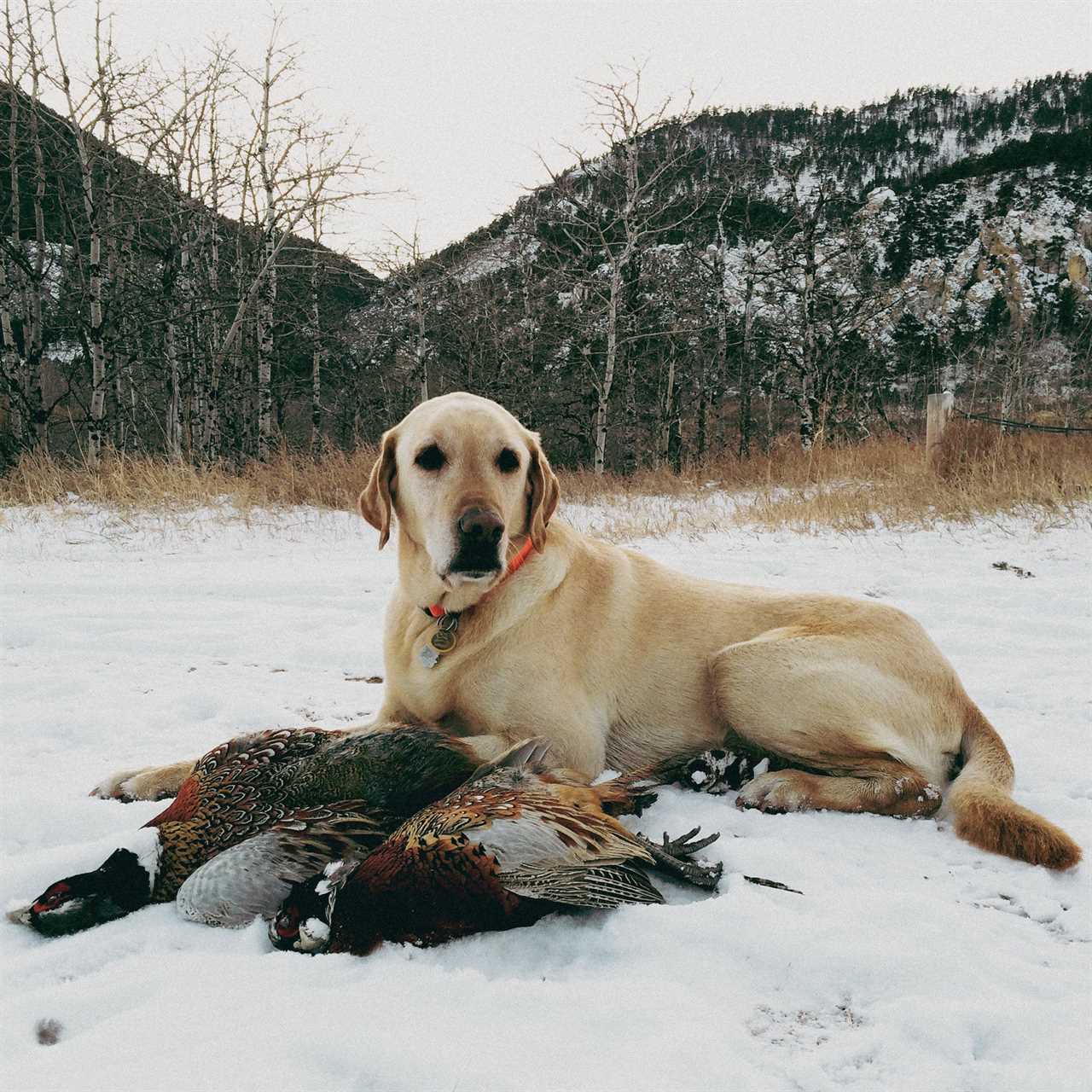
A good boy. Christine Peterson
I spent his whole life hoping for more. Just one more nap, one more run, one more hunt. All the while I had, right then, the very things I was longing for. And even if he went into remission, if he made it to our chukar hunt and even the next bird season, we would still, one day, run out of time. A life spent together with a dog like Tuco isn’t about what’s next. It’s about what’s now.
So I stopped wondering and just watched him in the willows, tail whipping back and forth. I should have known with that first bird, in that moment we sat by each other with pride, that all he’d been trying to do was teach me to trust him, to trust us. And, perhaps most importantly, to quit worrying so damn much.
The post A Lesson from the Bird Dog Who Turned Me Into a Hunter appeared first on Outdoor Life.
Articles may contain affiliate links which enable us to share in the revenue of any purchases made.
By: Christine Peterson
Title: A Lesson from the Bird Dog Who Turned Me Into a Hunter
Sourced From: www.outdoorlife.com/hunting/my-first-bird-dog/
Published Date: Thu, 22 Dec 2022 20:38:16 +0000
----------------------------------------------
Did you miss our previous article...
https://manstuffnews.com/weekend-warriors/falling-iguanas-and-frozen-frogs-heres-what-happens-to-coldblooded-critters-in-frigid-weather
 Backyard GrillingWeekend WarriorsAdvice from DadBeard GroomingTV Shows for Guys4x4 Off-Road CarsMens FashionSports NewsAncient Archeology World NewsPrivacy PolicyTerms And Conditions
Backyard GrillingWeekend WarriorsAdvice from DadBeard GroomingTV Shows for Guys4x4 Off-Road CarsMens FashionSports NewsAncient Archeology World NewsPrivacy PolicyTerms And Conditions
